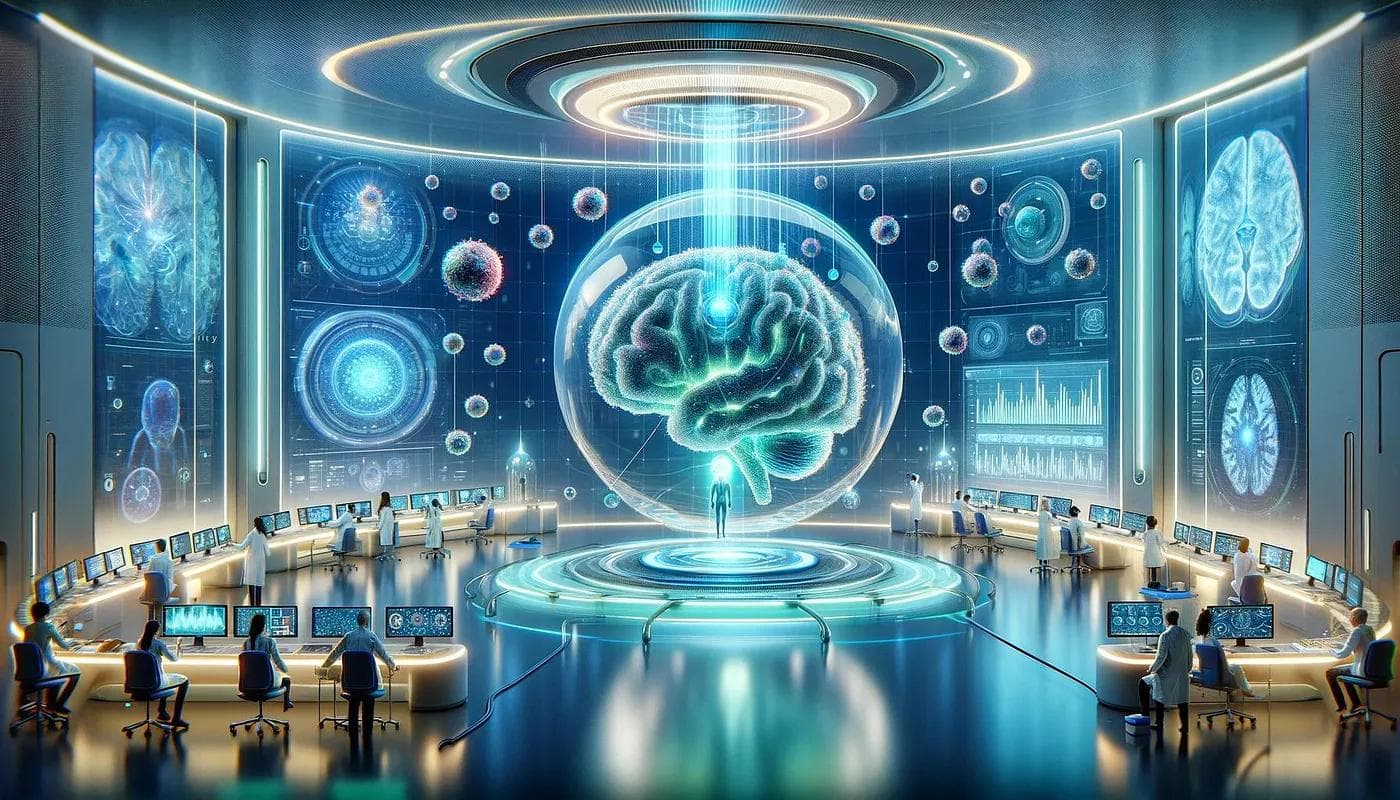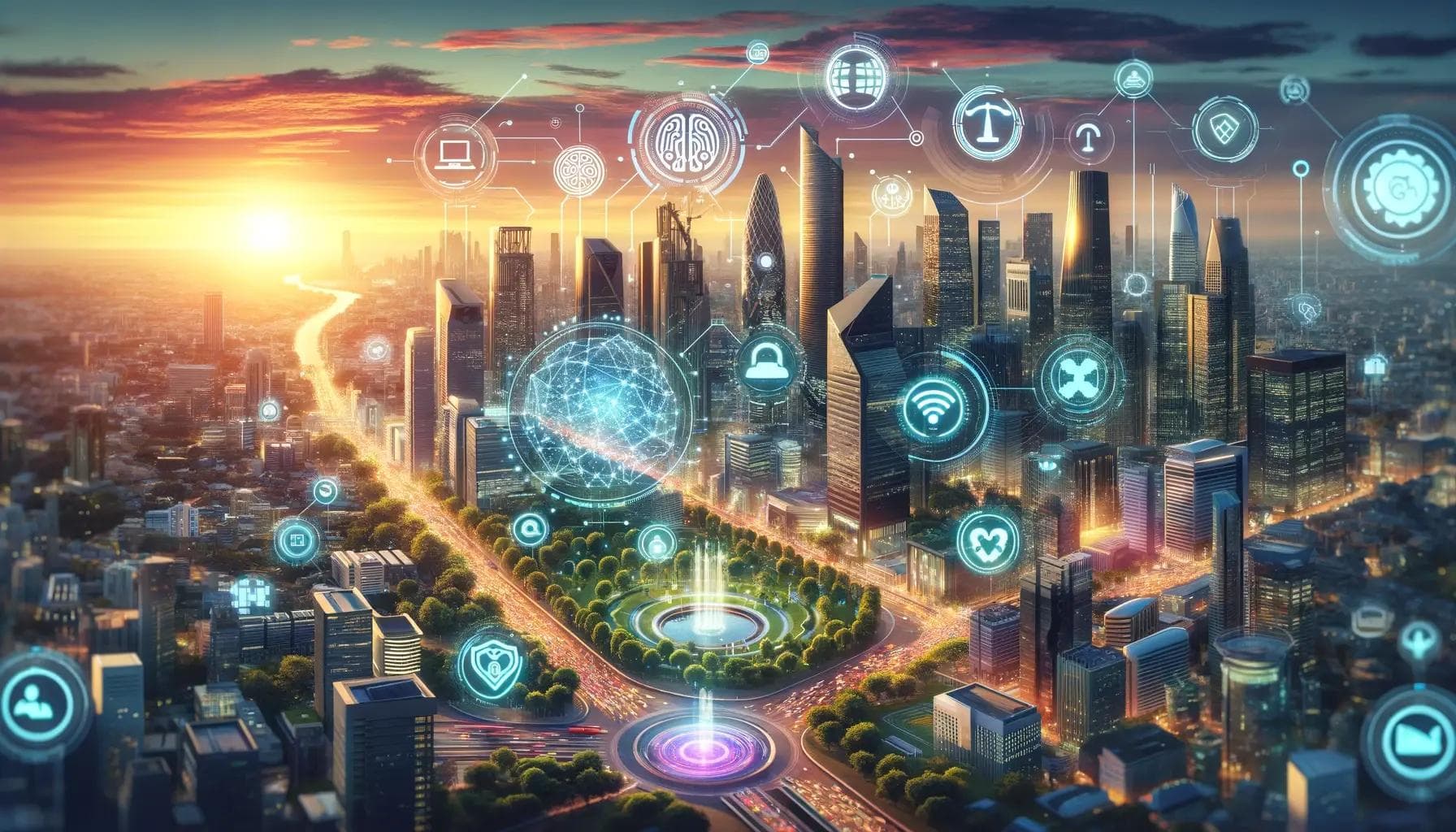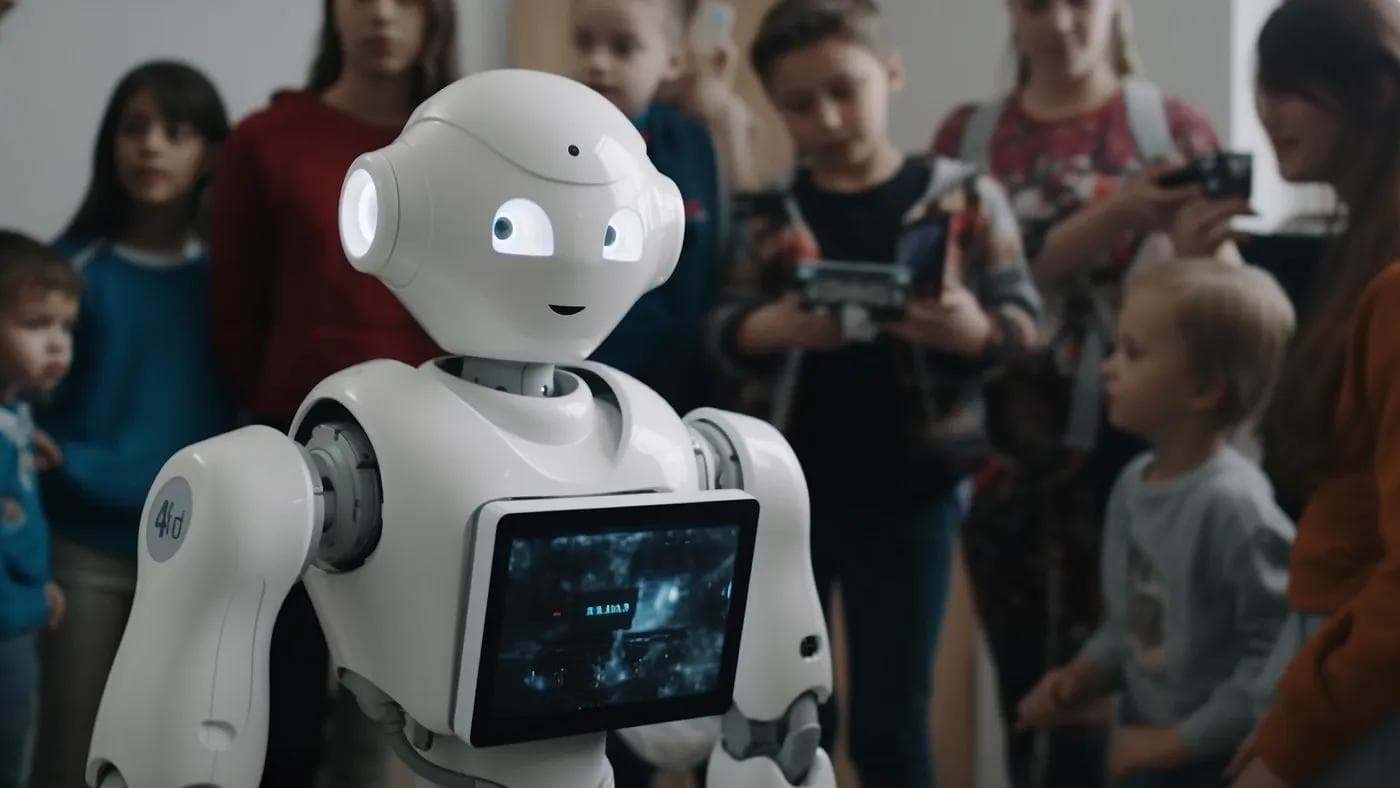Imagine this — minuscule robots, tinier than a speck of dust, navigating the intricate maze of our brain. It’s an idea we would have laughed off a couple of decades back, but as 2050 looms, this fantasy is becoming tangible.
The fusion of neuroscience and nanotechnology isn’t just a scientific milestone; it’s a testament to human potential. Just as the internet revolutionized our lives in unimaginable ways, nanobots in neurology promise to do the same.
A Harmonious Blend of Humans and Machines
In my childhood, I was amazed by sci-fi films, attracted by the smooth connection between people and machines. That dream is gradually taking shape. Collaboration with robots is more than just a fashionable buzzword; it is a watershed moment in our progress as a species.
The possibility of nanobots augmenting cognitive processes may appear formidable. But consider the potential — could these nanobots help us learn quicker, think sharper, and live fuller lives? These possibilities often leave me in awe.
2050: A Glimpse into the Future
In 2050, medical and technological progress will reach a major turning point. Nervous system diseases used to be very hard to treat, but thanks to amazing progress, they are now within reach of being properly managed. Visualise a society where long-lasting illnesses like Parkinson’s and Alzheimer’s are not feared but instead carefully and kindly handled.
The key players in this change are nanobots, which are tiny but powerful friends in the fight against various illnesses. With unmatched accuracy, these little robots traverse through the human body at a size invisible to the human eye. They provide those suffering from neurological disorders a fresh lease on life by rebuilding, repairing, and revitalising neural circuits. With their assistance, patients see notable gains in their motor abilities, memory, and general brain function, as well as a renewed sense of vigour and optimism.
This is a period of synergistic convergence between neurology and automation, not merely fighting disease. Human intelligence is unleashed in previously unthinkable ways by this combination. Globally, we see an upsurge in creativity, problem-solving, and cognitive skills. Because to these technological wonders, people are not only living longer but also enjoying richer, more meaningful lives with better protection and enhancement of their mental skills.
In 2050, the limits of human potential are continuously being redefined in the civilization we see around us. The use of nanotechnology to medicine elevates and transforms each and every person it comes into contact with. In this environment, the previously unattainable has become conceivable, and there is greater hope than ever for human intelligence and well-being in the future.
Balancing Act: Ethics and Responsibility
While contemplating these progressions, I cannot overlook the ethical and cultural ramifications. Who will have access to these breakthroughs? What steps can we take to protect people’s privacy and make it less likely that these tools will be abused?
These are questions that everyone should think about, not just scientists and techies. As we start this new era, we need to be both eager for progress and dedicated to social responsibility.
In Conclusion:
Incorporating nanobots into the domain of neurology represents not only a milestone in scientific progress, but also an exhibition of the ingenuity and resourcefulness of the human species.
As the year 2050 approaches, may we not solely commemorate it with delight, but also with a sense of responsibility and an aspiration to acknowledge the more extensive ramifications of our advancements. In essence, we are altering the nature of humanity by modifying the structure of our minds.
“The future is ours to shape.” — Eric Hofer
Let’s carry with us a sense of wonder, a commitment to ethics, and an insatiable curiosity about the boundless possibilities that lie ahead.



